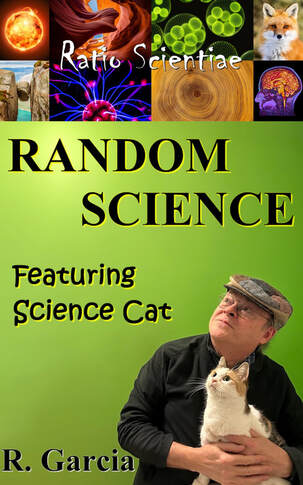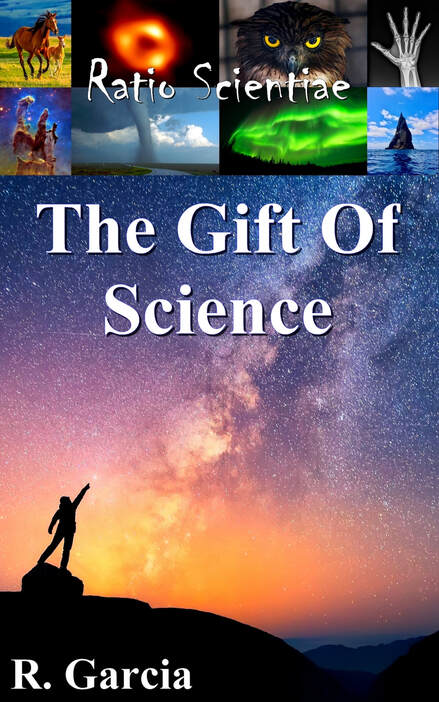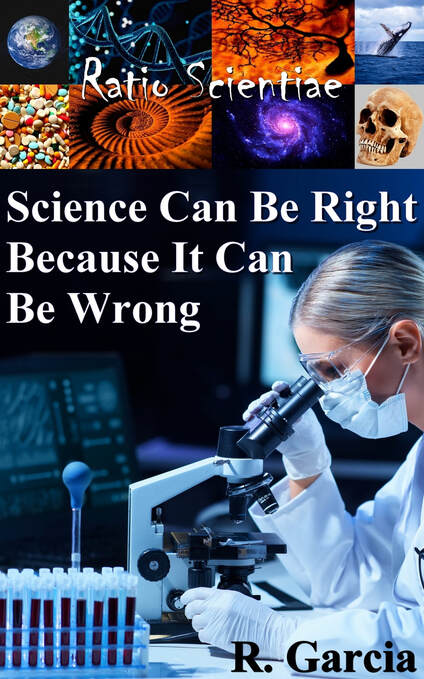 There are two things I like to do. The first, is that I tend to look at stuff that many people don’t care about and visit places that many people will not visit. Some things that interest others will definitely catch my attention, but I am mostly drawn to the unusual even if it is sometimes boring. The second thing that I like to do, is check out the science behind things. So, you combine one with the other, and what do you get? Random Science! Yes, that is the title of my most recent book. In it, I check out the science behind a motley assortment of things ranging from bones, clouds, rocks, cicadas, and carnivorous plants, to amusement park rides, musical saws, phonographs, and singing wine glasses. But that is only part of the story. This book also features a cute cat which has become the mascot of my website and which appears in the book under her professional name, Science Cat. Science Cat helps me to present some awesome science facts as well as to showcase the science behind cats like herself. This book is part trivia and fun facts, part nature writing and how things work, and part cats. So if you are interested in an eclectic mix of the interesting, the mundane, and the curious, join Science Cat and me in the exploration of Random Science! You can see the book and read a sample following this link.
0 Comments
 I have finally published the second book of essays based on my blog! The book is organized around several unifying themes, one of which is what I call “the gift of science”. When people hear this, they probably think of medical advances or technology useful for everyday life, but the gift of science goes way beyond that. As I explain in this book, this gift is something much more fundamental, something that is necessary for all of us to truly be free, and something, in fact, that most people take for granted and don’t really think about much. Also, sadly, the gift of science is something that numerous individuals reject. Be it global warming and COVID-19 severity deniers, creationists, antivaxxers, flat Earthers, or Qanon, in today’s polarized and confrontational environment, evidence, facts, and reason have been replaced by feelings and beliefs. Healthy skepticism has been replaced by a rabid irrational skepticism mired in ignorance, misinformation, and adherence to conspiracy theories. And confidence in those who have been trained to observe and discover reality has been replaced by a deep-seated mistrust fueled by all sorts of grievances. With this book, I hope to push back against all this and help as many as I can to once again accept the gift of science. This book also addresses a number of specific questions and issues ranging from the serious to the humorous. Among them are: What happens when scientists dream? Is it true that nothing is impossible? What are the best Big Bang Theory nerd themes? In science is it enough to be right? Who created life, the mad scientist or the scientist? Can science operate in a vacuum? Can believers and skeptics agree on anything when it comes to the supernatural? Will there be a gospel for the age of space exploration? What are the applications of evolution? Is the summit of the tallest mountain also the closest to outer space? Is there a fine line separating the sublime from the ridiculous? Do we really want to be in harmony with nature? Are scientists speaking mumbo jumbo? Why are some genes known as the “Halloween Genes”? What is a cation afraid of? And, if a scientist wins a Nobel Prize, does he/she still have IT? As in my previous books, Science Can Be Right Because It Can Be Wrong, this book is structured into several sections dealing with the nature of science, how science works and how it doesn’t, and what is and isn’t science. There also are stories about science and scientists, a section addressing how you relate to science, as well as sections dealing with issues that are fun and of interest. Finally, I also include some bad science jokes and puns, and all-purpose whimsy. If you have enjoyed reading my posts over the past few years and have benefited from them, then purchasing this book (or my books of short stories) is an excellent way to support my work. The book is available on Amazon as an ebook. If you don’t have a Kindle, you can read it with a Kindle App on your phone or tablet, or you can read it directly on the cloud section of your Amazon account using Amazon’s inbuilt e-reader. If you read my book, I would appreciate if you can please leave a review on its Amazon page. I hope you like my book. Science on!  I want to let everyone know that I have finally published my book! This book is based on my blog posts from the past few years. It is organized around a number of unifying themes, one of which is why science can be right. Some people who attack science provide a laundry list of the many times science has been wrong about something and then triumphantly ask: If science can be wrong, how can science possibly generate reliable knowledge on which we can base important decisions that will affect society and the world? In this book I point out the reason this attack is misguided. Science can be right, because it can be wrong! Yes, the fact that science can be wrong is actually one of its strengths. The fact that science can make mistakes should actually increase our confidence in science! Why this is the case is explained in the book. This book also addresses a number of questions involving science and other topics. Among them are: Can anyone be a scientist? Can you win an out-of-body gold medal? What is heroic science? Is the only good scientist a blind scientist? Why does science have to be defended from the unreasonable man? Is science still cool if it affects you? What does science have to say about zombies? Do you know more than the experts? What are some of the stories of the monks and nuns of science? Can being a scientist immunize you against fearing the supernatural? How do we know there is not a conspiracy by scientists? How do you tell the difference between rational and irrational skeptics? Is a mind in the gutter a good thing to have in science? If a tree falls in a forest and there is no one around to hear it, does it make a sound? If you feel faint while reading the word “hippopotomonstrosesquippedaliophobia”, does this mean you have it? And, of course: Why is Schrodinger's cat wanted dead and alive? In this book I have endeavored to combine thoughtful explanations of the how and why of science with the examination of topics that are both informative and interesting, and I have added enough jokes, stories, anecdotes, and all-purpose whimsy to hopefully balance the more serious parts. If you have enjoyed reading my posts over the past few years and have benefited from them, then purchasing this book (or my books of short stories) is an excellent way to support my work. The book is available on Amazon as an ebook. If you don’t have a Kindle, you can read it with a Kindle App on your phone or tablet, or you can read it directly on the cloud section of your Amazon account using Amazon’s inbuilt e-reader. If you read my book, I would appreciate if you can please leave a review on its Amazon page. Thank you very much, and be on the lookout as there are more books to come! Take care and science on! Note: the image belongs to the author and can only be used with permission. |
 RSS Feed
RSS Feed